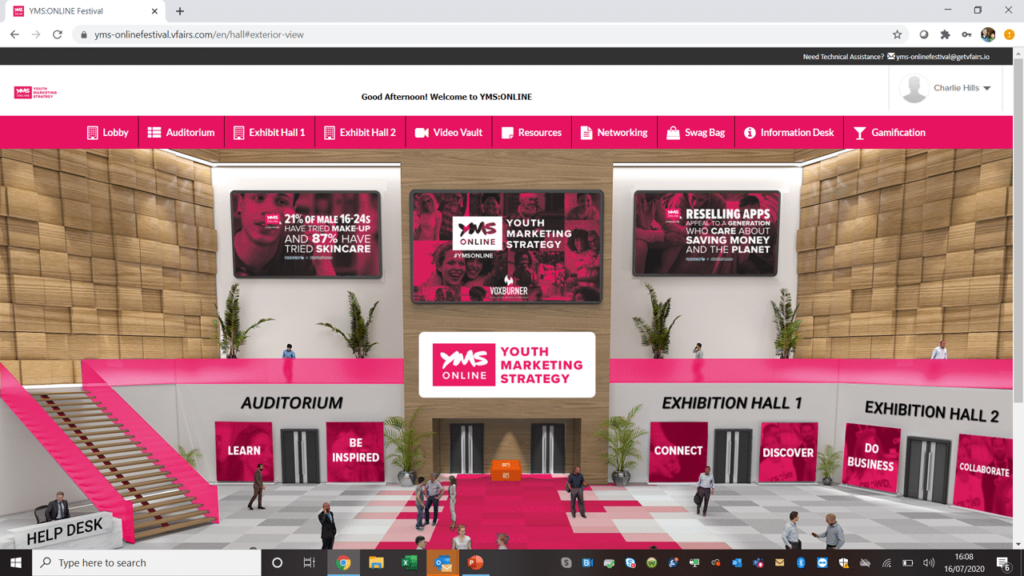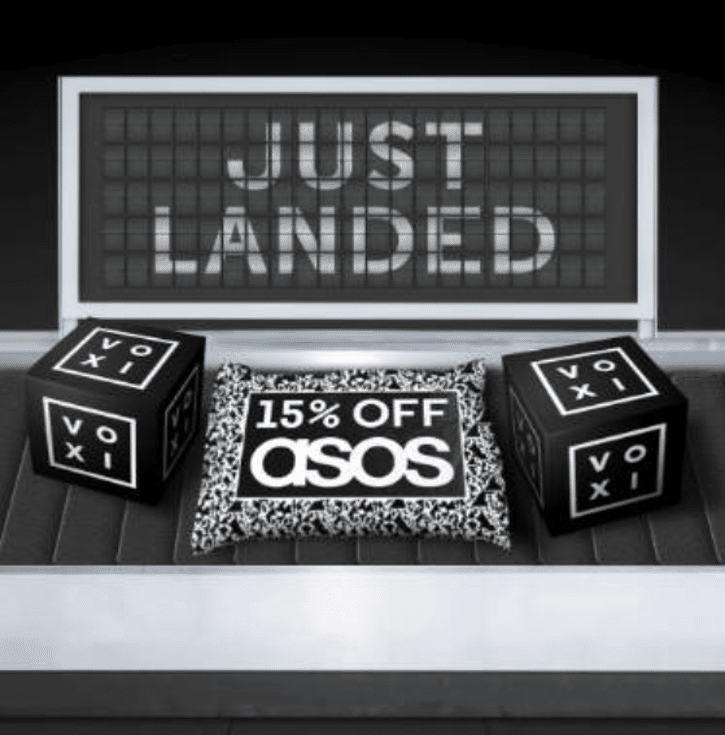Generation Z are a tough audience for loyalty programmes everywhere; they have different expectations and needs, sign up and engage far less than older demographics, and seem to operate by a very different rulebook. In the UK, it’s no different. UK Research undertaken in January 2020 by Mando-Connect and YouGov found that just under half (49.1%) of men aged 18-24 are members of a loyalty programme and only 56.7% of women aged 18-24. That compares to a national average loyalty programme membership in the UK of 76%. However, the research also found that, whilst they do not join programmes, they are in fact very positive towards loyalty — 79% of 18-24s think loyalty programmes are a great way for brands and businesses to reward customers; 60% think all brands should offer one. That is far higher than the national averages of 72% and 52% respectively.
By: Charlie Hills
So, if Gen Z like loyalty so much, but aren’t currently joining programmes, what can we do as loyalty marketers to engage them? We attended Voxburner’s digital conference “Youth Marketing Strategy Online London” to capture some new insight and ideas for how to engage this audience. The conference is touted as part of a series of global events and virtual festivals demystifying the changing trends, habits, and attitudes of 16-24s — the consumers of the future. Where better to find out more.

Learning One: Offer genuine help during tough times
In “The New Abnormal: Why Hope, Community and resilience are the way forward”, Sean Pillot De Chenecey spoke compellingly about the need for brands to be trustworthy, reliable, and competent to really engage Gen Z. He checked Aristotle for guidance for modern brands “the virtuous brand does virtuous things for the right reasons”. Brewdog and Ben & Jerry’s were held up as 2 great examples of virtuous brands, doing the virtuous things for the virtuous reasons.
During Covid-19 we have seen many loyalty programmes in the UK step up. At the most basic level we have seen programmes change their terms and conditions so that members don’t miss out. Simple things like changing voucher durations, or giving members longer to add points can make a real difference to how members feel.
But it’s the programmes who have gone further that really stand out. Programmes like Accor Live Limitless who are helping to try and find a vaccine with a long running partnership with Institut Pasteur, or Marks & Spencer’s Sparks who, as well as recently relaunching, added significant new charities to those that they support.
This author however would like to see programmes go further, especially to engage Gen Z. How could programmes step up and help the charities that matter most to this age group? Or, could programmes be even more active and help Gen Z directly. All charities are really in need of funding at the moment. And Youth focussed charities are no different. Charities like Centre Point who are trying to end youth homelessness or The Princes Trust who help get young people aged 11 to 30 get into jobs, education, and training are in need of support. At the least, Loyalty Programmes could encourage members to donate to these charities, either directly or through their loyalty currency. But I think they could and should go further. How could your loyalty programme actively help young people? Could you make direct donations? Could you repurpose your products, services, or rewards to help (like Brewdog did)? Could you promote the charities and good causes (like Ben & Jerry’s does)? Could you even take more direct action — for example, sharing your expertise and resources?
Learning Two: Help them resolve their conflict between ethics and value
The conflict this Generation have between making ethical choices, and value choices came up as a broad theme through-out the conference. They want to do the right thing, but they can’t afford it as funds are limited and priorities conflicted. In the Youth Trends 2020 Panel, Josh Akapo explained, “I like spending money. It’s also impossible to be completely ethical in this modern day and age.”
Brett Booth and Luke Hodson of Urban Nerds continued the discussion. They highlighted the clash between ethics and value in fashion “Fresh Garms” is everything. If they have £100 to spend this weekend, 56% would spend it on new clothes. They prioritise looking good. But three quarters have access to less than £400 per month. So it creates a tension. Experience comes second in terms of how they spend. This audience prioritise looking good”. But they want to make ethical choices too, they just can’t always afford to — hence the popularity of fast fashion like Boohoo and Pretty Little Thing, despite ethical challenges.
So what can programmes do? The answer is simple. Invest to offer them high value, ethical rewards, that offer them the status they crave. VOXI Drop (who recently won the coveted Loyalty Redefined Award at the Loyalty Magazine Awards) is a great example of a brand offering ethics and value to inspire Gen Z. Recent Drops have included 15% off ASOS, along with a cool prize draw to win one of 20 x £50 vouchers or the chance to win the ultimate “working from home bundle” or free games from Fanatical. It’s not hard to identify the rewards that will engage a Gen Z membership, you just have to think differently.

Learning Three: Talk with them, not down to them
I attended a fascinating panel discussion “What’s in a word. Brand engagement in the age of #BLM” featuring Joi Freeman of Remnant Strategy, Eleshea Williams of The Black Curriculum, and Hayel Wartemberg of Word on the Curb. A really important subject, well handled by this expert panel.
The panel discussed systematic racism in Britain. Hayel was armed with facts and stats from Word on the Curb Research. Did you know that the average white household has £280k in wealth, and the average Black African household in Britain has one tenth of that? Eleshea went on “black people are disadvantaged in every pillar of society in Britain.”
The suggested solution was compelling. Ask. Listen. Talk. As Loyalty Marketers, do we genuinely do this enough? Hayel said, “they want relationships with brands where they have equity — these are the ones that will succeed in positive brand engagement. Talk with them, not down to them.” Brands need to do more than just donate, brands need to educate. Gen Z want brands to engage with them on this important subject, but make sure you get it right “55% say that if you get it wrong, they will consider not purchasing with you again.”
The critical learning was the importance of asking, talking, listening. For example, when surveyed, 56% of Gen Z felt the decision was wrong for BBC and Netflix to take down ‘Little Britain’ without consulting the black community first. Research should be a cornerstone of every loyalty marketer’s approach to engaging Gen Z.
Learning Four: Digital culture just got even bigger
Ed Vaizey, the Former Minister for Technology, talked about the important of culture for young people today, citing the rise of user generated content during lockdown as a great way that young people have been able to express themselves. As well as looking at Youtube, downloading films, playing video games, watching esports and more. His advice? “If you want to reach young people, the best way to do it is through culture”.
He went on to talk about a “fundamental change” that has happened — the even bigger rise of digital. He talked people’s first thought will no longer be about the live experience, but how the digital amplification of events will be a “parallel thought”. How can providers share their content more broadly? “People in the arts are much much more aware now of the enormous audience out there that, even after Covid-19, can’t visit them.”
The implication for loyalty is awesome. Whereas in the past, tickets to live events were expensive, hard to get to and inaccessible to many members, the rise of digital experiences means that we, as loyalty marketers, can offer high quality experiences to many more than we ever could before, at far lower cost. The latest show on Broadway to a global audience? No problem. The latest gig at the O2 to millions? No issue. The opportunities to innovate the experiences themselves are also vast — from back stage meet and greets, to hanging out with your mates, to digital behind the scenes explorations — all these can be done digitally now. Gen Z are ready to experience these new types of reward experiences and I’m sure they will also be able to tell us how to make them even better.
Conclusion
Youth Summit provided a fantastic overview of the Gen Z audience, what we need to know, what we need to think about and above all else, a wealth of new data and insights to inform our approach to engaging this critical audience in loyalty.
Next steps for me include a thorough review of Voxburner and Student Bean’s new Youth Trend Report 2020, covering 6 key trends:
- Values vs Consumer Desires
- Gender Redefined
- News on Social
- Shoppertainment
- Recommerce
- Activism 2.0
As well as analysis of how Students shop now, and the all important Youth 100 — their favourite top 100 brands. Netflix came out as no 1 overall, followed by YouTube and Spotify. In fashion, ASOS was no 1, followed by Nike and Primark (an eclectic selection). And in Health & Beauty, Lush and The Body Shop dominate. Check it out for other sectors!
I will also be connecting with the great speakers and specialist agencies and consultancies who featured to see what we can do better to engage Gen Z.
Charlie Hills is a featured contributor to the Wise Marketer and is the Managing Director and Head of Strategy at Mando-Connect.


